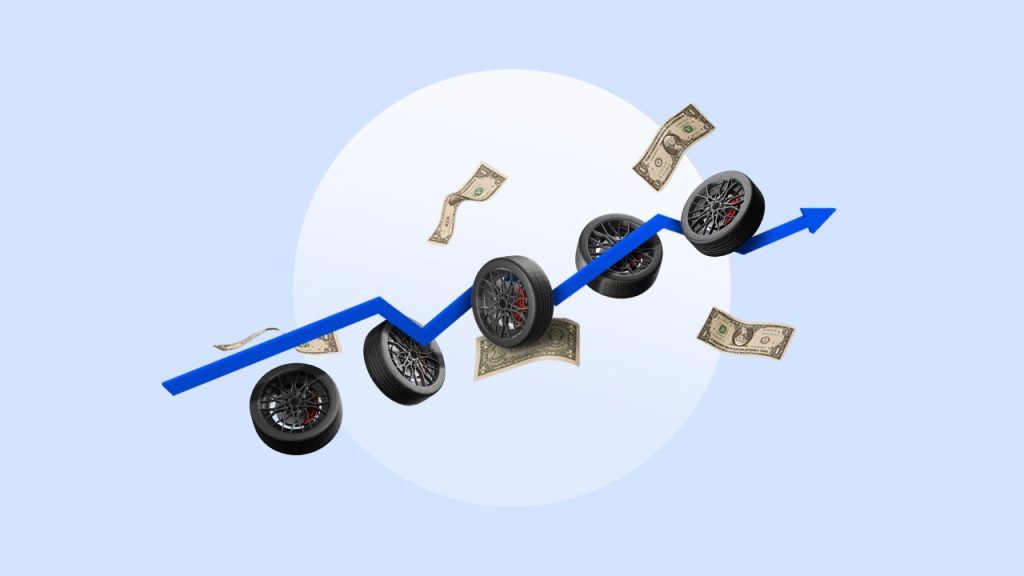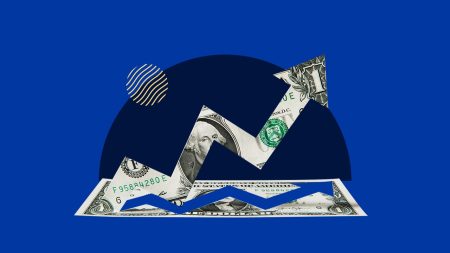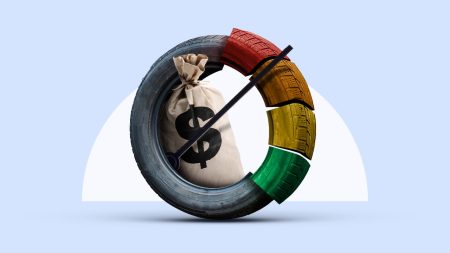Key takeaways
- The average auto loan interest rate for new cars in the third quarter of 2024 was 6.61% percent, while the average used car loan interest rate was 11.74 percent.
- Your credit score plays a significant role in determining your interest rate, but other factors such as the lender, amount borrowed, length of the loan and economic conditions also play a role.
- The best way to secure a competitive interest rate on your auto loan is to shop around and work to improve your credit score.
If you’re in the market for a car and plan to finance with a car loan, remember to consider car loan interest rates in your budget. According to Experian’s State of the Automotive Finance Market report, the average auto loan interest rate for new cars in 2024’s second quarter was 6.84 percent, while the average used car loan interest rate was 12.01 percent.
Generally, the lower your credit score, the higher your annual percentage rate (APR) will be. However, you don’t need a perfect credit score to get a reasonable rate. To find the best auto loan rate, shop around and work to improve your credit score if it isn’t in the best shape.
Average auto loan interest rates by credit score
Lenders base interest rates primarily on your credit score, but it is still possible to get a decent rate without top-tier credit. For example, the average car loan interest rate for people with a 730 credit score is 6.70% for new cars and 9.63% for used cars, while those with a credit score of 550 can expect an average of 13.00% for new cars and 18.95% for used cars.
The average car loan interest rates, broken down by credit score, can help you see the difference a higher credit score can make for your rates.
| Personal FICO score | Average interest rate for new car loans | Average interest rate for used car loans |
|---|---|---|
| 781 to 850 | 5.08% | 7.41% |
| 661 to 780 | 6.70% | 9.63% |
| 601 to 660 | 9.72% | 14.07% |
| 501 to 600 | 13.00% | 18.95% |
| 300 to 500 | 15.43% | 21.55% |
Source: Experian State of the Automotive Finance Market Q2 2024
Factors that affect auto loan interest rates
While your credit score plays a large part in determining your interest rate, there are also other factors to consider.
Credit score
The two most common scores used when underwriting car loans are the FICO score and VantageScore. Both account for several measures of financial wellness, including payment history, credit utilization, credit mix and average age of accounts. There are differences in the number of metrics used and how they are weighted, but both scores fall between 300 and 850. Competitive rates go to buyers with scores in the mid-600s and higher.
Lenders may instead use an auto industry-specific scoring system, such as the FICO Auto Score, which ranges from 250 to 900. These scores consider the same factors but give more weight to risk factors associated with your likelihood of repaying an auto loan.
Lender
Buyers may have a choice of a bank or dealership loan. It can be tempting to go with dealer financing since it can be the most convenient option. There is no extra paperwork to fill out, and you can get an approval on the spot. However, you may find more favorable rates from a bank loan.
Regardless of which option you choose, different lenders have different credit underwriting criteria. All will consider your credit score, income and debt-to-income ratio, but lenders differ in what they find acceptable. Some may also consider your education or professional experience.
Amount borrowed
According to Kelley Blue Book, the average new car sold for $48,623 in October 2024. That said, buyers typically borrow the price of the car minus the down payment — and based on second quarter data from Experian, the average amount financed for a new car was $40,927.
With the average car payment at $737 for new cars, over 80% of buyers choose to finance their vehicles. However, if you are unwilling to put more than the required amount down, the lender may see an increased risk, so it might raise the interest rate to compensate.
Loan term
Loan terms generally run between 36 and 84 months, but this can vary significantly. In fact, Experian reports that the average car loan length is 68.17 months for a new car and 67.15 months for a used car.
However, it is important to remember that a longer loan term may result in paying more interest over the life of the loan. If you take an 84-month auto loan, you will pay significantly more interest and make payments for much longer, even if your monthly payment is lower.
Additionally, lenders may charge higher interest rates for longer loans. This is because there is more perceived risk for the lender. The longer the loan, the higher the likelihood it will not be paid back in full.
Economic and market conditions
Broader market factors also play a role in setting the industry’s minimum rates. When the federal funds rate is high, as dictated by the Federal Reserve, it costs lenders more to borrow money. In turn, you are likely to face higher interest rates.
Fortunately, following two cuts in September and November, the current fed funds target rate is 4.5 to 4.75 percent. These cuts came after nearly two years of steady rate hikes and should result in lower rates for most financial products, including auto loans.
If you have strong credit, experts forecasted auto loan rates may see a decent decrease through 2025. However, those with poor credit are less likely to see relief. If that’s you, focus on comparing bad credit auto loan rates.
How to get a better auto loan interest rate
There are a few ways to improve your chances of getting a reasonable interest rate, regardless of your credit score.
- Prequalify with multiple lenders. Apply with at least three lenders before choosing one. Most lenders offer either a preapproval or prequalification process so you can view your rates without causing multiple hard pulls of your credit. This tactic may also help you score competitive auto loan rates.
- Make a larger down payment. A down payment decreases the amount you need to borrow. This means the lender takes on less risk, translating to lower interest rates. Experts recommend aiming for at least 20 percent of the car’s purchase price, although the average down payment sits between 10 percent and 20 percent of the purchase price.
- Get a cosigner. If you have a lower credit score, consider asking a family member or trusted friend with an excellent credit score to cosign your auto loan. Your cosigner will assume the debt if you cannot pay it back, which means the lender has less risk.
Bottom line
The lowest car loan rates are typically reserved for borrowers with near-perfect credit scores. While you are not guaranteed to get the rate corresponding to your credit bracket, it is great for comparison purposes when shopping around for a good deal.
To get started, prequalify for an auto loan with lenders online and offline to see the rates you may be eligible for.
Read the full article here









